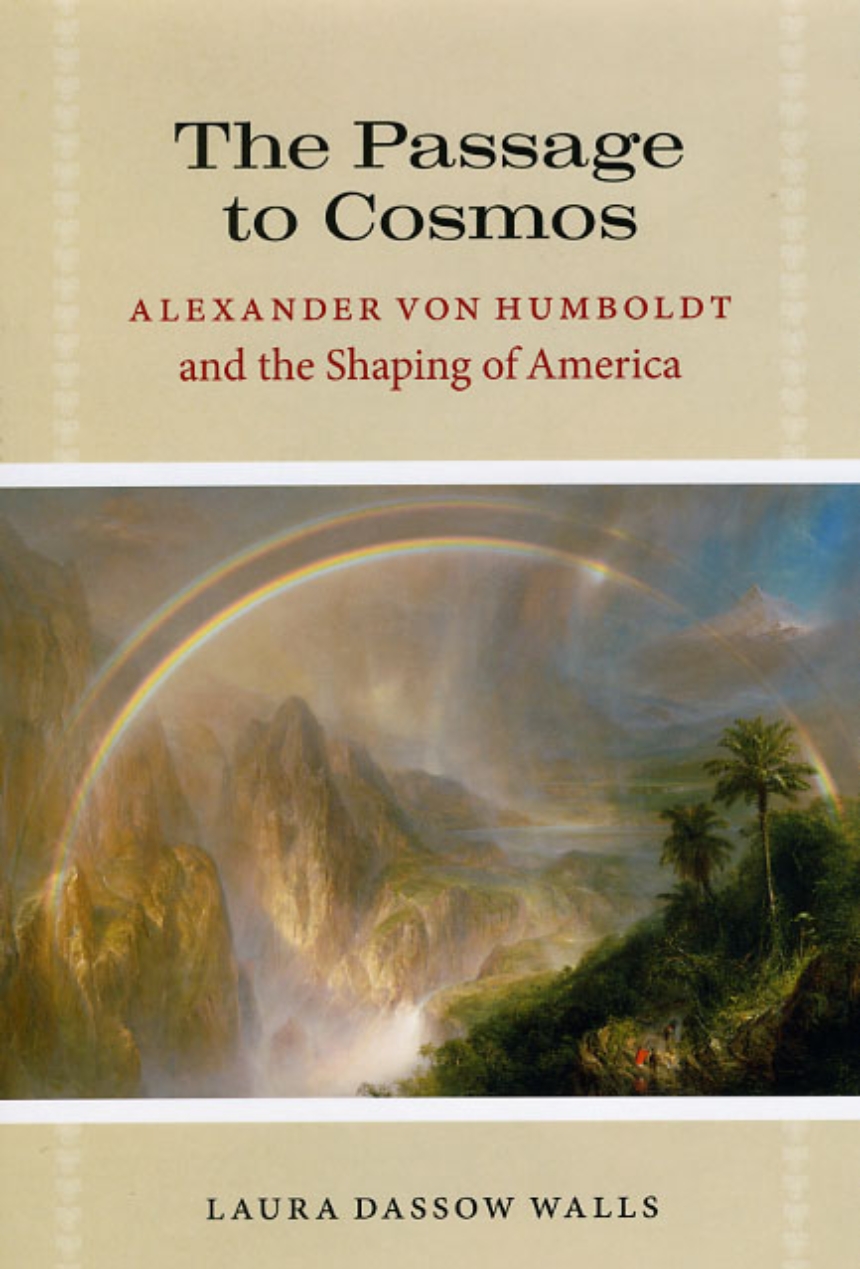The Passage to Cosmos
Alexander von Humboldt and the Shaping of America
The Passage to Cosmos
Alexander von Humboldt and the Shaping of America
Explorer, scientist, writer, and humanist, Alexander von Humboldt was the most famous intellectual of the age that began with Napoleon and ended with Darwin. With Cosmos, the book that crowned his career, Humboldt offered to the world his vision of humans and nature as integrated halves of a single whole. In it, Humboldt espoused the idea that, while the universe of nature exists apart from human purpose, its beauty and order, the very idea of the whole it composes, are human achievements: cosmos comes into being in the dance of world and mind, subject and object, science and poetry.
Humboldt’s science laid the foundations for ecology and inspired the theories of his most important scientific disciple, Charles Darwin. In the United States, his ideas shaped the work of Emerson, Thoreau, Poe, and Whitman. They helped spark the American environmental movement through followers like John Muir and George Perkins Marsh. And they even bolstered efforts to free the slaves and honor the rights of Indians.
Laura Dassow Walls here traces Humboldt’s ideas for Cosmos to his 1799 journey to the Americas, where he first experienced the diversity of nature and of the world’s peoples—and envisioned a new cosmopolitanism that would link ideas, disciplines, and nations into a global web of knowledge and cultures. In reclaiming Humboldt’s transcultural and transdisciplinary project, Walls situates America in a lively and contested field of ideas, actions, and interests, and reaches beyond to a new worldview that integrates the natural and social sciences, the arts, and the humanities.
To the end of his life, Humboldt called himself “half an American,” but ironically his legacy has largely faded in the United States. The Passage to Cosmos will reintroduce this seminal thinker to a new audience and return America to its rightful place in the story of his life, work, and enduring legacy.
424 pages | 22 halftones | 6 x 9 | © 2009
Biological Sciences: Natural History
Geography: Cultural and Historical Geography
History: American History, Latin American History
Reviews
Table of Contents
Acknowledgments
Preface: Romancing the Ruby-Crowned Kinglet
Prologue: Humboldt’s Bridge
Chapter 1: Confluences
Humboldt’s America
Humboldt’s Europe
A New Earth and a New Heaven
Chapter 2: Passage to America, 1799–1804
Portals and Passages
The Casiquiare Crossing
High Peaks and Hanging Valleys
Chapter 3: Manifest Destinies
Humboldt’s Visit to the United States, 1804
The Humboldt Network
The Many Faces of Humboldtian Science
By Land and by Sea
Interchapter: Finally Shall Come the Poet
Chapter 4: “All are alike designed for freedom”: Humboldt on Race and Slavery
(De)Constructing Race
(Re)Constructing Race
Humboldt and American Slavery
Chapter 5: The Community of Cosmos
Franz Boas, Cosmographer
Introducing Humboldt’s Cosmos
Behold the Earth
Chapter 6: The Face of Planet America
The Apocalypse of Mind: Emerson and Poe
The Face of Nature: Thoreau, Church, and Whitman
Dwelling: Susan Cooper, Muir, Marsh
Epilogue: Recalling Cosmos
Endnotes
Bibliography
Index
Awards
Choice Magazine: CHOICE Outstanding Academic Title Awards
Won
Modern Language Association of America: James Russell Lowell Prize
Won
Organization of American Historians: Merle Curti Intellectual History Award
Won
Society for Literature, Science, and the Arts: Michelle Kendrick Memorial Book Prize
Won
